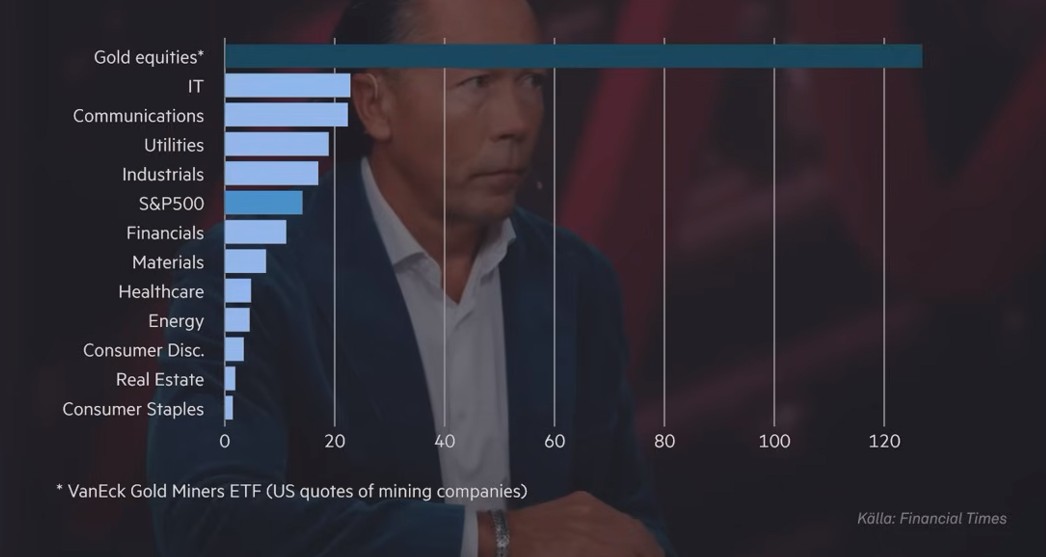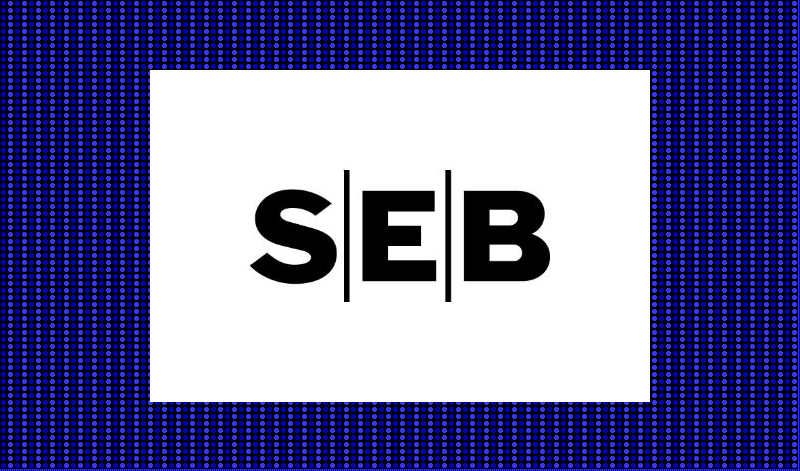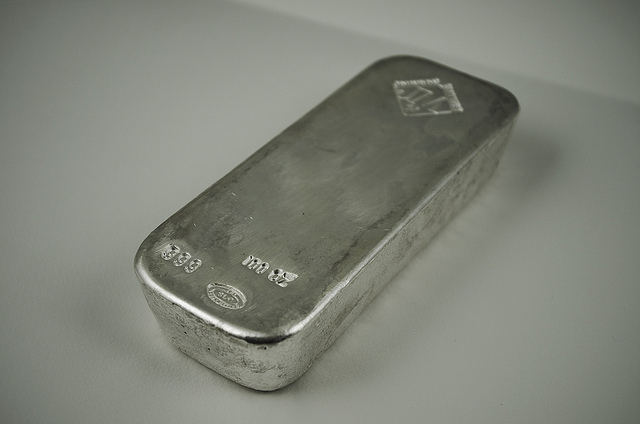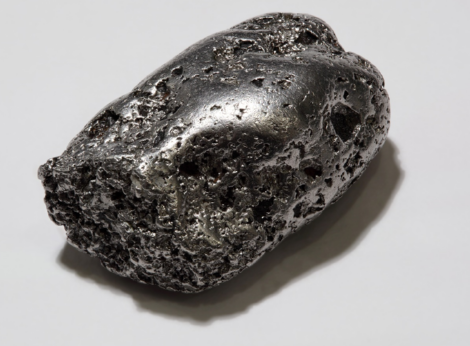Nyheter
The real lesson of Barclay’s fine

 On Friday 23 May news broke that Barclays Bank had been fined 26 million pounds, nearly $44 million, in a case related to a trader who pushed the gold price lower at the fix on 28 June 2012. The trader, Daniel Plunkett, had $43 million in two-year-old gold options that he had sold to a client which were coming close to being in the money; he placed a 60,000 ounce sell order at the fix to try to keep the price from rising to a level at which the options would be in the money.
On Friday 23 May news broke that Barclays Bank had been fined 26 million pounds, nearly $44 million, in a case related to a trader who pushed the gold price lower at the fix on 28 June 2012. The trader, Daniel Plunkett, had $43 million in two-year-old gold options that he had sold to a client which were coming close to being in the money; he placed a 60,000 ounce sell order at the fix to try to keep the price from rising to a level at which the options would be in the money.
News of the penalty to Barclays set tongues wagging. The news comes out amid a great deal of confusion over the demise of the silver fixing and the need to replace it as a benchmark silver price; ongoing restructuring of the bullion banking business; and a rise in the shrill commentary about the London precious metals fixes being consistently manipulated and distorted.
The last point misses the real lesson of the Barclays’ fine.
Barclays was not fined for trying to manipulate the gold fix, nor for successfully doing so. Barclays was fined for lack of supervision of a gold trader who tried to manipulate the fix one day in 2012.
People who apparently know virtually nothing about how precious metals trade have made a cottage industry out of claims that the dealers in the inner ring of the fix have an undue advantage, being able to profit by trading based on their knowledge of the volumes of buy and sell orders they are receiving from clients. One recent suit alleging silver fix price manipulation was just thrown out of U.S. courts for lack of evidence, but that has done nothing to stop the business. The Barclay’s incident points to the extent to which this is not really the case, however.
The key point is that Barclay’s gold traders participating in the fix did not know what their own gold options trader was doing, let alone what their outside clients were doing. So much for coordinated manipulation across the decades.
One trader succeeded one day to push the gold price down and went undetected by his own trading colleagues at his bank. When the client complained Barclays investigated, made the client whole, and let the trader go. In the ensuing two years it also apparently has put in place systems to protect against employees doing such things again and going undetected. Those do not sound like the actions of a bank systematically gaming the fix.
Perspective
In the middle of the 1980s a Drexel Burnham broker in southern Florida named Ted Butler manipulated the frozen and concentrated orange juice market, creating an unregistered pool of his clients money that he traded on a coordinated basis to control orange juice prices. (This was prior to the movie Trading Places.) The CFTC spotted the strange trades, investigated, and came after both the broker and Drexel. Drexel paid a fine for nonsupervision and let Butler go. Trying for leniency with the CFTC, Butler offered to show the CFTC on-going misfeasance in the silver market by Drexel.
The CFTC investigated, and found two matched trades which Drexel had undertaken with another dealer in order to allow the other dealer to square its silver books at the end of the trading day, so that it was completely hedged overnight.
Drexel paid a fine for those two trades. Permanently banned from the futures industry as a result of his orange juice caper, Butler became the voice crying out against silver market manipulation, first by Drexel, then Merrill, and later JP Morgan over the past 26 years or so. He is the source of the thought that banks have massive uncovered short positions. Interestingly, the fact that dealers used match trades back then to square their books at the end of each day points to the fact that banks run hedged books.
So now we know of three people who have been banned permanently from commodities trading. One is Butler, who has spent his life since being banned alleging that the silver market is manipulated. The second is Bill Murphy, who was banned in the early 1990s and went on to be one of the founders of GATA, spending the rest of his life alleging that the gold market is manipulated.
And now we have Daniel Plunkett, who tried to hit the gold fix one day. We doubt Mr. Plunkett will follow his predecessors’ examples and try to set himself up as an expert on market manipulation, blaming others with no real evidence to support any accusations, but his one-day action has given them fuel to keep their cottage conspiracy theory industry alive for a while longer.
[box]Denna analys är producerad av CPM Group och publiceras med tillstånd på Råvarumarknaden.se.[/box]
Disclaimer
Copyright CPM Group 2012. Not for reproduction or retransmission without written consent of CPM Group. Market Commentary is published by CPM Group and is distributed via e-mail. The views expressed within are solely those of CPM Group. Such information has not been verified, nor does CPM make any representation as to its accuracy or completeness.
Any statements non-factual in nature constitute only current opinions, which are subject to change. While every effort has been made to ensure that the accuracy of the material contained in the reports is correct, CPM Group cannot be held liable for errors or omissions. CPM Group is not soliciting any action based on it. Visit www.cpmgroup.com for more information.
Nyheter
Vad guldets uppgång egentligen betyder för världen

Guldpriset har nyligen nått rekordnivåer, över 4 000 dollar per uns. Denna uppgång är inte bara ett resultat av spekulation, utan speglar djupare förändringar i den globala ekonomin. Bloomberg analyserar hur detta hänger samman med minskad tillit till dollarn, geopolitisk oro och förändrade investeringsmönster.
Guldets roll som säker tillgång har stärkts i takt med att förtroendet för den amerikanska centralbanken minskat. Osäkerhet kring Federal Reserves oberoende, inflationens utveckling och USA:s ekonomiska stabilitet har fått investerare att söka alternativ till fiatvalutor. Donald Trumps handelskrig har också bidragit till att underminera dollarns status som global reservvaluta.
Samtidigt ökar den geopolitiska spänningen, särskilt mellan USA och Kina. Kapitalflykt från Kina, driven av oro för övertryckta valutor och instabilitet i det finansiella systemet, har lett till ökad efterfrågan på guld. Även kryptovalutor som bitcoin stiger i värde, vilket tyder på ett bredare skifte mot hårda tillgångar.
Bloomberg lyfter fram att derivatmarknaden för guld visar tecken på spekulativ överhettning. Positioneringsdata och avvikelser i terminskurvor tyder på att investerare roterar bort från aktier och obligationer till guld. ETF-flöden och CFTC-statistik bekräftar denna trend.
En annan aspekt är att de superrika nu köper upp alla tillgångsslag – aktier, fastigheter, statsobligationer och guld – vilket bryter mot traditionella investeringslogiker där vissa tillgångar fungerar som motvikt till andra. Detta tyder på att marknaden är ur balans och att kapitalfördelningen är skev.
Sammanfattningsvis är guldets prisrally ett tecken på en värld i ekonomisk omkalibrering. Det signalerar misstro mot fiatvalutor, oro för geopolitisk instabilitet och ett skifte i hur investerare ser på risk och trygghet.
Nyheter
Spotpriset på guld över 4300 USD och silver över 54 USD

Guldpriset stiger i ett spektakulärt tempo, nya rekord sätts nu på löpande band. Terminspriset ligger oftast före i utvecklingen, men ikväll passerade även spotpriset på guld 4300 USD per uns. Guldet är just nu som ett ångande tåg som det hela tiden skyfflas in mer kol i. En praktisk fördel med ett högre pris är att det totala värdet på guld även blir högre, vilket gör att centralbanker och privatpersoner kan placera mer pengar i guld.
Även spotpriset på silver har nu passerat 54 USD vilket innebär att alla pristoppar från Hunt-brödernas klassiska squeeze på silver har passerats med marginal. Ett högt pris på guld påverkar främst köpare av smycken, men konsekvensen av ett högt pris på silver är betydligt mer kännbar. Silver är en metall som används inom många olika industrier, i allt från solceller till medicinsk utrustning.
Nyheter
Guld och silver stiger hela tiden mot nya höjder

Priserna på guld och silver stiger hela tiden mot nya höjder. Eric Strand går här igenom vilka faktorerna som ligger bakom uppgångarna och vad som kan hända framöver. Han får även kommentera aktier inom guldgruvbolag som har haft en bättre utveckling än nästan allt annat. Han säger bland annat att uppgången kommer från låga nivåer och att det i genomsnitt är en mycket högre kvalitet på ledningarna för bolagen idag.
-

 Nyheter3 veckor sedan
Nyheter3 veckor sedanOPEC+ missar produktionsmål, stöder oljepriserna
-

 Nyheter4 veckor sedan
Nyheter4 veckor sedanEtt samtal om guld, olja, fjärrvärme och förnybar energi
-

 Nyheter2 veckor sedan
Nyheter2 veckor sedanGoldman Sachs höjer prognosen för guld, tror priset når 4900 USD
-

 Nyheter3 veckor sedan
Nyheter3 veckor sedanBlykalla och amerikanska Oklo inleder ett samarbete
-

 Nyheter2 veckor sedan
Nyheter2 veckor sedanGuld nära 4000 USD och silver 50 USD, därför kan de fortsätta stiga
-

 Analys4 veckor sedan
Analys4 veckor sedanAre Ukraine’s attacks on Russian energy infrastructure working?
-

 Nyheter4 veckor sedan
Nyheter4 veckor sedanGuldpriset uppe på nya höjder, nu 3750 USD
-

 Nyheter3 veckor sedan
Nyheter3 veckor sedanEtt samtal om guld, olja, koppar och stål













